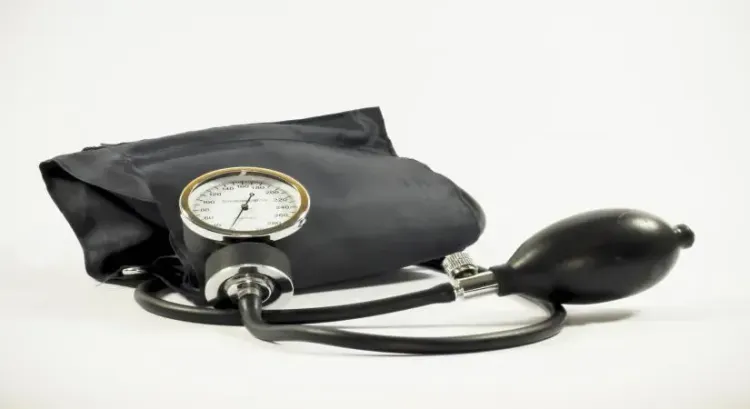Boosting Potassium with Bananas and Broccoli to Combat High Blood Pressure

Synopsis
Key Takeaways
- Bananas and broccoli are rich in potassium.
- Hypertension affects over 30% of adults worldwide.
- Increasing potassium intake may be more effective than reducing sodium.
- Men respond better to potassium than women in blood pressure control.
- Dietary changes can impact health significantly.
New Delhi, April 14 (NationPress) Consuming bananas and broccoli, both abundant in potassium, may significantly assist in reducing hypertension, which impacts over 30 percent of adults worldwide, as indicated by a study released on Monday.
Hypertension, also known as high blood pressure, is a primary contributor to coronary heart disease and strokes, and can lead to additional health issues such as chronic kidney disease, heart failure, irregular heart rhythms, and even dementia.
Researchers from the University of Waterloo in Canada discovered that enhancing the dietary ratio of potassium to sodium might be more beneficial for lowering blood pressure than merely cutting back on sodium intake.
"Typically, individuals with high blood pressure are recommended to reduce their salt consumption," mentioned Anita Layton, Professor of Applied Mathematics, Computer Science, Pharmacy, and Biology at the University of Waterloo.
"Our findings imply that incorporating more potassium-rich foods into your meals, like bananas or broccoli, could positively affect your blood pressure more than just limiting sodium," Layton added.
Potassium and sodium are both electrolytes—substances that aid the body in transmitting electrical signals for muscle contraction, regulate water levels, and execute various essential functions.
The findings were published in the American Journal of Physiology-Renal Physiology.
"Primitive humans consumed a variety of fruits and vegetables, which may have led to the evolution of our body's regulatory systems to function optimally with a high potassium, low sodium diet," explained Melissa Stadt, the lead author and a doctoral candidate in Waterloo's Department of Applied Mathematics.
"Currently, Western diets are generally richer in sodium and poorer in potassium. This might clarify why hypertension is prevalent in industrialized nations rather than in isolated communities," Stadt noted.
To explore the effects of increased potassium intake on blood pressure management, the research team created a mathematical model.
The model effectively demonstrated how the potassium-to-sodium ratio influences the body, revealing that men are more susceptible to developing high blood pressure than pre-menopausal women, although men also tend to respond favorably to a higher potassium-to-sodium ratio.









